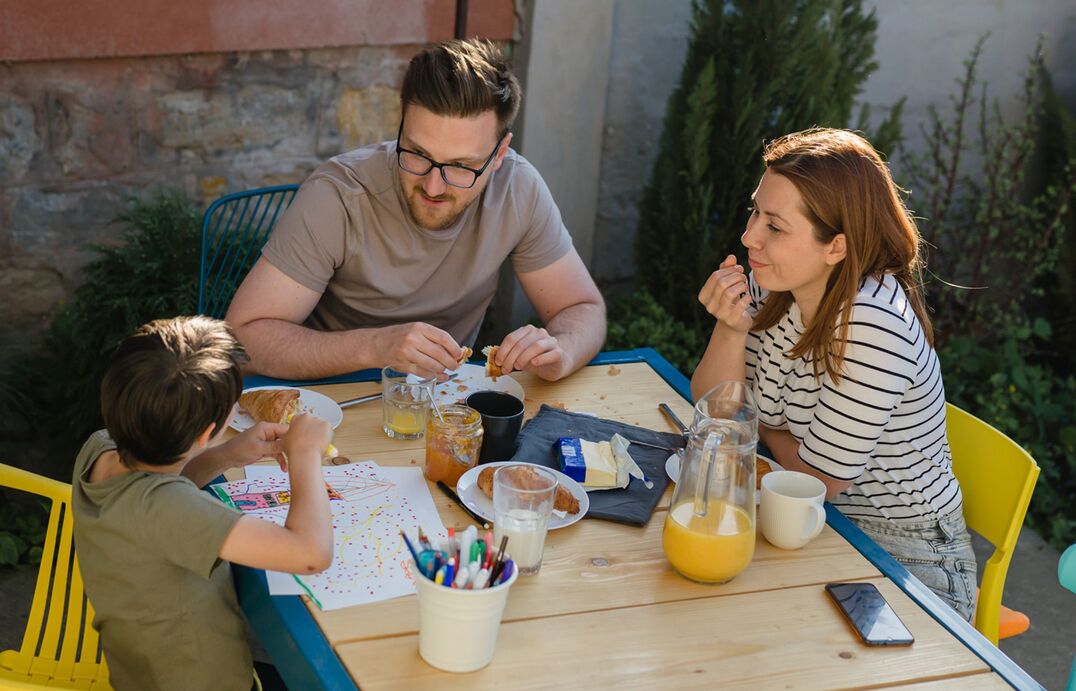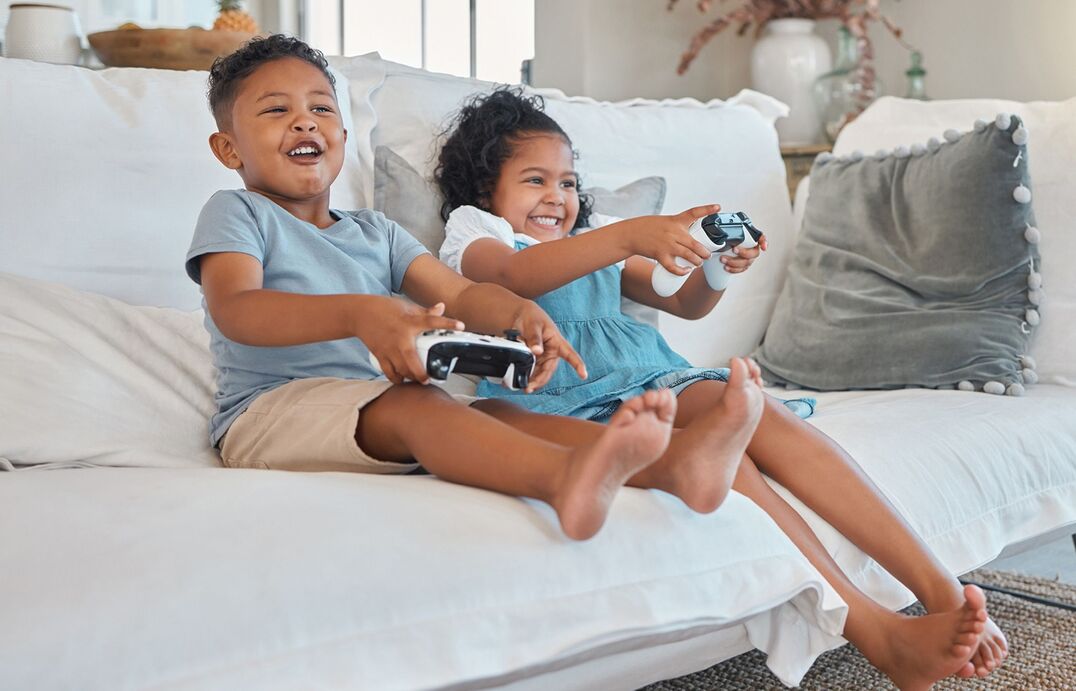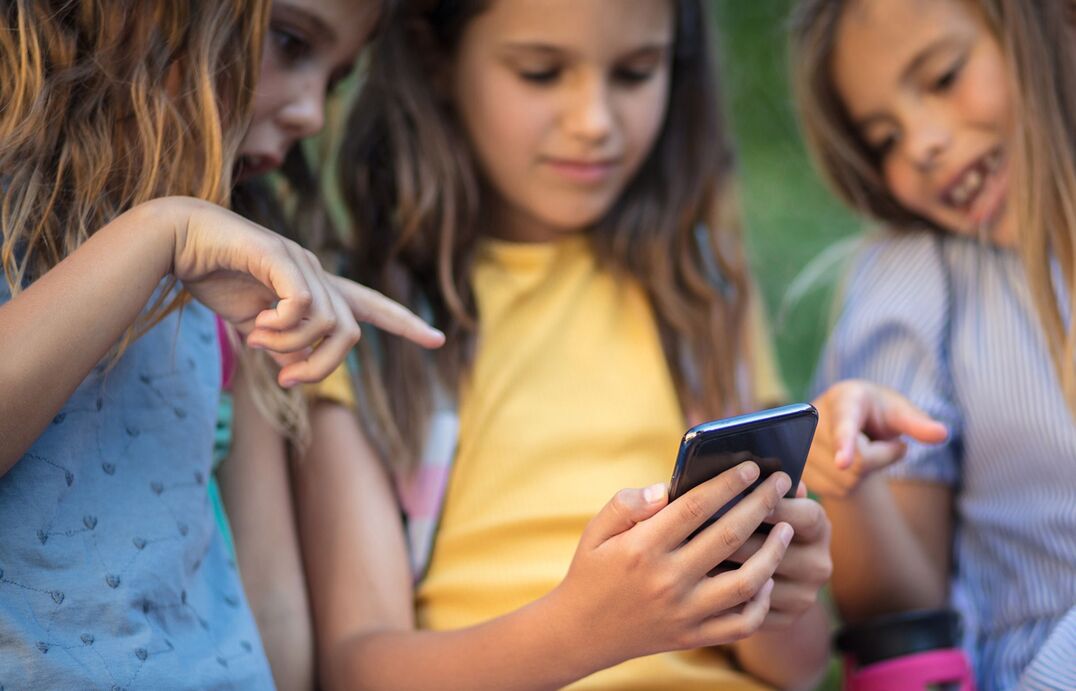Finding balance: becoming a screen smart family
Screens and devices are now firmly part of our world. We all use them to work, play, learn and socialise – and so do our children.

Children fleeing violence at Christmas need your help. Donate and help give a Buddy Bag by 25 December.
Unlocking the power of literacy goes beyond reading and writing – it’s also important to know how to think about this content in order to make sense of the world.
Now, digital literacy and media literacy are a big part of experiencing the world in a way that is safe and allows children to thrive, and it's never too early to start fostering these skills that will empower them for a lifetime.
Digital literacy refers to the skills and knowledge needed to use, understand and engage with digital technology successfully. It starts with basic access and use of technology and then grows into a deeper understanding of how technology affects us and those around us.
Media literacy is an aspect of digital literacy. It is the ability to critically analyse, evaluate and understand online content and the various forms of media we encounter. People who have strong media literacy are able to decode media messages, assess the influences of those messages and the effects they can have on thoughts, emotions and behaviours. They are also able to create media responsibly.
You can’t ignore the role of technology in your children’s lives – even toddlers see devices being used and are trying to make sense of what they do. You can, however, build understanding from an early age about safe and responsible technology use.
The following topics can help guide this understanding. To help you know when to introduce these ideas we have added age ranges for each of the following concepts.
As soon as your children have access to digital technology, they will need to start developing an understanding of the risks and responsibilities of technology use. In other words, it’s never too early to start having these conversations.
It’s important to realise that this is not a “one and done” deal, but an ongoing dialogue that will need to become more complex and nuanced as your child matures, relative to their age and the types of things they are doing online.
From a young age, children can grasp the concept of devices being connected through invisible networks. Messages, photos or videos can move so quickly from one device to another – and you cannot always control where things end up!
You can demonstrate this by sending something from your phone to a different device, such as from your phone to your tablet, and then on to yet another person.
If you are ordering takeaway or making an online purchase, demonstrate how the money is being taken from your account or card so your children can see in real-time how this exchange works.
As children understand how content spreads through networks, they'll grasp the significance of privacy. Teach them what information is appropriate to share and what should be kept private.
When you have done that, show them that you are making use of the privacy settings on their devices and all apps – explain that they are like a seat belt for your child, a safety precaution, in case they forget and share something they should not have.
You can teach your children about creating and storing passwords and using two step verification to protect their personal data.
Model consent by seeking permission from your child before taking pictures or sharing content about them. Discuss where and why you'd like to share it. If they say no, respect their decision.
This practice normalises the importance of consent and encourages other family members to follow suit.
Children can be quick to trust – and have often been told to follow instructions and do as they are told, especially when they come from an adult.
Empower them to question things that seem suspicious online. Teach them to trust their instincts and approach trusted adults if they encounter anything that feels off.
Encourage them to be cautious about enticing offers or deals that appear too good to be true.
Sooner or later, your children will enter virtual spaces where they can interact with others online. These might be message boards, chat rooms, online games or social media groups.
Talk to them about appropriate and inappropriate interactions and help them identify red flags, such as someone requesting to talk on a different platform or take the conversation offline.
The internet provides us with more information than ever before in human history. This can be really confusing, especially when things look official but turn out to be false.
Help your child decide on a few sites that have been shown to be accurate, particularly those designed for children, to ensure they access accurate information.
For example, Behind the News from ABC TV presents the current news and stories of interest in an accessible manner for upper primary school-aged children, and YouTube Kids can prevent children from accessing inappropriate content which might appear as an auto-play video or in advertising.
Introduce digital literacy and media literacy concepts to children from a young age.
Teach children about the invisible network that connects devices and demonstrate through practical examples.
Help children understand the importance of privacy and utilise privacy settings on devices and apps.
Model consent by seeking permission from your child before sharing their content online.
Encourage children to be cautious online and trust their instincts.
Guide children in identifying reliable and accurate sources of information online.
Keep track of the lessons that you’ve shared with your children by using our lesson checklist. This downloadable checklist can be printed and kept as a reference for you to refer back to over the years, keeping notes about what you have shared with your children and how they responded to this information.
We know it takes a village to raise a child. Your village could include grandparents, aunts and uncles, family friends, babysitters or cousins - and it's great to share this information with them. Download a PDF version to share the article with ease.

Screens and devices are now firmly part of our world. We all use them to work, play, learn and socialise – and so do our children.

Choosing, protecting, and engaging with games for children.

Discovering that your child may be experiencing or engaging in online bullying can stir complex emotions.


